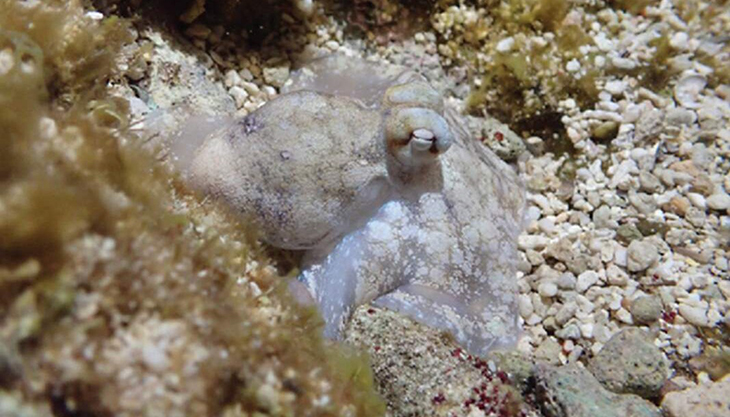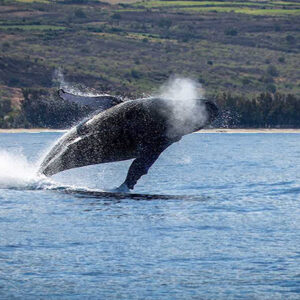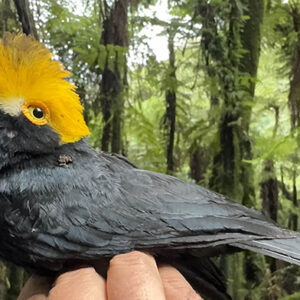
Researchers have made a fascinating discovery regarding octopus sleep patterns, shedding light on the striking similarities between their slumber and that of humans.
These cephalopods, it turns out, undergo two distinct sleep phases akin to our own, encompassing a “quiet” stage and an “active” stage resembling rapid eye movement (REM) sleep in mammals. During this active phase, octopuses exhibit intriguing behaviors such as twitching their arms and eyes, heightened breathing rates, and displaying vibrant skin colors, sparking speculation that they may engage in dreams.
A collaborative effort between scientists from the Okinawa Institute of Science and Technology (OIST) in Japan and the University of Washington in the United States meticulously examined the brain activity and skin patterns of octopuses during their active sleep period.
Remarkably, these enigmatic creatures entered an active sleep phase approximately once an hour, lasting about a minute. Strikingly, their brain activity during this phase closely resembled that of when they were awake, mirroring the REM sleep seen in humans.
The study also found an interesting pattern, which was that octopuses cycled through specific skin patterns while sleeping as well. This phenomenon prompted scientists to think about a few intriguing theories. One such hypothesis suggests that octopuses may be honing their skin patterns during sleep to enhance their camouflage abilities while awake or maintaining their pigment cells. On the other hand, it’s possible that octopuses could be re-living and learning from their waking experiences, like hunting or evading predators, and possibly reactivating the corresponding skin pattern associated with every encounter.
Published in the journal, Nature, these study findings underscore the astonishing parallels between the sleep behaviors of octopuses and humans.
Senior author, Professor Sam Reiter, head of the Computational Neuroethology Unit at OIST, said, “All animals seem to show some form of sleep, even simple animals like jellyfish and fruit flies. But for a long time, only vertebrates were known to cycle between two different sleep stages.”
“The fact that two-stage sleep has independently evolved in distantly related creatures, like octopuses, which have large but completely different brain structures from vertebrates, suggests that possessing an active, wake-like stage may be a general feature of complex cognition,” added co-author Dr, Leenoy Meshulam.
This revelation holds profound implications for the field of science, suggesting that the mechanisms governing sleep and, potentially, dreaming, have evolved independently in humans and octopuses, despite their evolutionary paths diverging some 500 million years ago.
In the natural world, sleep renders animals exceedingly vulnerable. During slumber, creatures cannot hunt for sustenance, defend themselves against predators, seek out mates, or safeguard their offspring. This underscores the paramount importance of sleep, trumping even the most fundamental activities that multi-celled organisms engage in for survival.
One might even say that sleep, and perhaps even dreaming, is one of the most fundamental needs for life.
What are your thoughts? Please comment below and share this news!
True Activist / Report a typo


